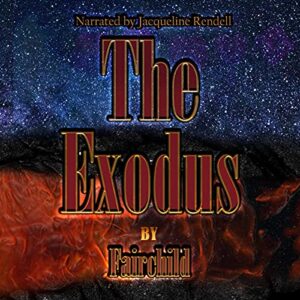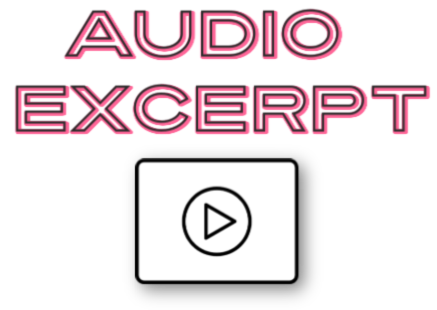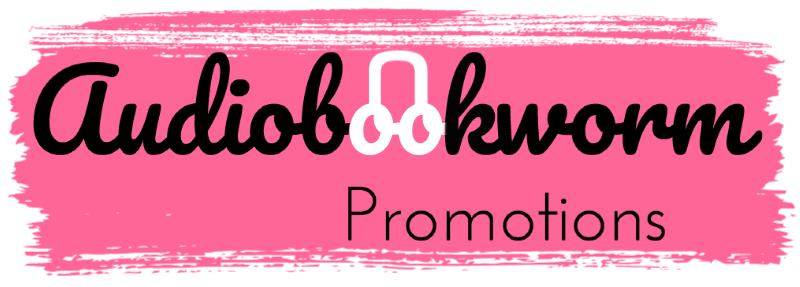


A girl who feels nothing; a boy who sees shadows and hears what others cannot; a baby without license to be born; a deaf teenager and scientific savant; offensive people; a general who passed law to hunt, imprison, and kill them all.
Where do they hide when the sub-nations of the United States draw their own lines in the ground that dictate which people get to be oppressed and who gets to be offended?
The Salvo Cartel built the tunnels to help them escape, to aid those with mental ailments, those who question, those who refuse to conform, gays, Christians, artists, people with scruples, and other deviants.
Do they flee to Salvo's underground cities, with eyes set on a grander safe place?
Where do they go when Lady Liberty douses her light?
Perhaps the same place she's been pointing her torch towards ever since she stepped atop her pedestal and realized at once that one day she, too, would be told to shut up.


Website
Was a possible audiobook recording something you were conscious of while writing?
Well, I also do voice work, so It had been in the back of my mind that I would narrate The Exodus myself. That was always the plan. But as my cast began to reveal itself, particularly Kola, I quickly came to realize I was not the correct narrator. The characters were just too important to leave on a page.
How did you select your narrator?
I wish I could take credit for selecting her, but I think Kola and Jacqueline reached out to each other and came to an understanding that I just happened to witness. I had heard Jacqueline’s narration of Savior’s Spell by Gwen Rivers and as soon as I heard it, I was all, “That’s her!” But then then I looked at my budget and looked at her rates and I just went, “Well, it was a nice thought.” I wanted to reach out to her but just knew my offer would be an insult, so I just sat back and let other auditions come in and even invited some. I was getting some decent auditions, but not anything that wowed me and made me feel like they could do a better job than I could, and the whole point of finding a narrator in the first place was to find someone could do it better than I could.
I was about to go with a narrator who I believe was a very good narrator. I also enjoy her work very much. I think she would have done a great job. Her resume and reputation were well established and she was seasoned, but I just had an itch in the back of my brain that I would always feel the audiobook wasn’t really complete. She’s very good, and Kola said she’d be okay with her but neither Kola nor I were ecstatic, and we were both, “Well, this these are our choices.” I was about to make an offer to this other narrator when Jacqueline, the very person I had wanted to do this project from the start, reached out to me instead and initiated interest. And everything about her was gracious. Kola loved her audition, and I loved her audition, and we came to an arrangement that I know she wouldn’t have accepted if The Exodus wasn’t the story that it was and the ideas that were worthy of exploring within it. Everything about Jacqueline Rendell becoming the narrator falls into the category of serendipity, she called it kismet. And now we have an electric cast and story because of it and her.
How closely did you work with your narrator before and during the recording process? Did you give them any pronunciation tips or special insight into the characters?
We communicated a lot. I really tried to keep my intrusion to Jacqueline’s ability to work to a minimum, although I’m sure there were times that might not have felt that way for her. There were three things I was mostly concerned about throughout the book: 1) Kola’s portrayal, if she didn’t work nothing would work; 2) protecting the twists, Jacqueline and I had some pretty lengthy discussions to ensure one character in particular didn’t give away any surprises (that’s all I’ll say there); and 3) Peter. Peter has a dialect that I found works well in written form, but I was concerned about how it would actually sound. When I wrote him, I had to create a pronunciation guide for just me, so I gave her that guide, or at least I think I did. But all credit to being able for the listener to understand Peter goes to Jacqueline.
Throughout the production, we stayed in constant contact, emailed mostly, but we both had the ability to call each other. I really wanted to let her do her thing. I mean, yeah, there were times she would do something that threw me for a loop and I went, “well that’s not how I imagined it, but, I think I like it better.” There was one character name that she pronounced it and my initial response was, “Well that’s not right.” But then it grew on me as I continued to listen to the narration, and now I pronounce the character’s name the same way myself. I think she helped me see some of my own book better because of her insight. Othewise, I think our conversations throughout the production process were mostly things like, “there’s a crackle right here.” I remember that I mentioned how I thought someone sounded too chipper in one moment. And she was gracious through all of it. She called The Exodus my book baby, and I just started thinking of her as the book baby sitter. She took care of The Exodus better than I think I did myself sometimes.
How do you manage to avoid burn-out? What do you do to maintain your enthusiasm for writing?
Great question! And a rough one! If the question is how do I avoid burnout while typing, that answer’s simple: take breaks, stand up, breathe, meditate, do something else.
But, just to clarify, it’s a common and incorrect assumption to associate writing with the simple act of putting words on paper. Putting words on paper may be the act of penmanship or even the act of typing, but it’s not writing. Writing can be sitting on a couch, staring at a ceiling in meditation while you consider the intricacies of a plot or a potential character. People who don’t write will often walk by and say, “Are you going to work or not.” And the writer says, “I am working.” It can be observing someone on the street and saying, “That’s what my character needs.” Then of course there’s the editing, the reading, the feedback from others, the thinking about your story nonstop that it keeps you awake and you even dream about and dream about your characters and argue with them about if you’re presenting them correctly.
If you’re asking how do I prevent burnout from writing as more than a process of just typing out words and staring at a computer screen, the answer is I don’t know how that’s even possible unless you don’t really want to write or haven’t fully learned what writing is.
Writing is the perfect meditation, no other profession has its own escape as writing does. If I find I can’t write sitting on a couch and getting my thoughts in order, I can always throw my dog on my bike and ride while I make writing considerations instead. If I can’t write there, I can sit at the computer and start typing. Even working on multiple projects is enough to avoid burnout. If I feel drained typing out something dramatic, I can switch to something funny, or informational. If writing for one character wears on me, I can switch to another project and write for another character, or even create another character for a project down the road.
One thing that was enjoyable about writing The Exodus was that is was so diverse that I never felt run down writing it. I’m still not run down writing it. It’s actually the only work I’ve ever written where I can say that I loved the editing process. Now, no one likes the editing process! It’s a horrible, daunting and nonstop reminder that you have to read your work one more time. Usually, when I read and edit, I do it so much that I come to hate the work. It was completely opposite with The Exodus. I think it might be a clue to me as a writer that if I might ever be burning out on writing that I haven’t created enough diversity in my book; that I’m not working on enough projects; or that I need to invest in learning more about writing.
What do you say to those who view listening to audiobooks as “cheating” or as inferior to “real reading”?
Okay, so this really irritates me when I hear this. Reading is a personal experience, and I don’t care how many Ph.Ds a person has or how many books that person has read, no one has a right, despite what the court of public shame says, to encroach upon that personal experience. You can obtain ideas from an audiobook just as you can a textual book. You can reread, take notes and have conversations with an audiobook just as well as you can a textual format. If you miss something the book said, you can rewind, you can even annotate. I’ve taught university literature classes. I have degrees in creative writing that required heavy investment in the study of reading literature, not just writing it, so believe me when I say that this ideology that suggests listening to an audiobook is somehow inferior is just not true. You ever had the chance to read a piece of poetry and find yourself going, “meh,” but then hear the author read it and find yourself going, “WOW!” That’s audiobook! That’s superior. Shakespeare didn’t write to be read. He wrote to be heard or seen. You ever hear R.C. Bray narrate Andy Wier’s The Martian? It does things the printed book doesn’t do. I mean, Bray takes on inflections that alone made me bust a gut laughing.
I don’t see audiobook haters making the argument that listening to Pink Floyd’s The Wall is cheating because you didn’t read the lyrics. I don’t see them saying it’s cheating to watch The Avengers because you didn’t read the script instead. You ever read a movie script? The movie is always better! Is it cheating to go to a Chris Rock Concert because you didn’t read his comedy notecards? Of course not! The reality is audiobooks promote literacy. I’m a writer because of audiobooks. I learned to love and appreciate good literature because of audiobooks. It all started because of those Disney books on tape that started by saying, “You will know it is time to turn the page when you hear the chime ring like this.” And Isn’t that what they do to promote reading in children, tell parents to read to them. If that’s not an audiobook, I don’t know what is. We know it’s not cheating because it’s a proven and effective way to invite children to enjoy literature.
I know adults today who still read books along with the audio book. And we have software that lets you switch between textual reading and audiobook. In fact, my best friend of over thirty years, who persuaded me to read The Lord of Rings told me he read an electronic copy of The Exodus along with its audiobook. If an audiobook is what it takes to expose people to good literature, how could anyone have a problem with that? I mean, that’s the purpose of literature, to expose people to the ideas within it. If an audiobook accomplishes that, how could anyone call that cheating? I think this stems from people who had one type of experience while reading that they think that’s how it should be for everyone. Now all that said, is audiobook the same as practice in reading text? No, but literacy demonstration is a different topic than reading literature.
What bits of advice would you give to aspiring authors?
Practice! Especially, practice with others because storytelling doesn’t happen without others. Surround yourself with practice. Take classes, read books, attend workshops, and ignore ANYONE pretending to be a writer and who tells you shouldn’t do this or don’t have to do this. Writing is all about practice. In fact, for anyone who writes, writing and practice are synonymous. Anyone who promotes or suggests avoiding proven outlets of practice has misunderstood that writing is all about practice. The more you do, the more you expose yourself to discovering how to get better. The more perspectives from other writers you expose yourself too, the more insight you get into something you might want to try in your own approaches—which suggests that a diet of consistently writing or practicing alone is not the right kind of practice. You don’t have to write like a particular teacher. You don’t have to write like an author of a self-help book. But you will never—and I mean NEVER—expose yourself to other perspectives of writing that can contribute to untapping your hidden strengths if you don’t surround yourself with practice. Never write alone and then keep it to yourself until you deem that it’s done, because it’s not done until you involve others.
What do you say then to people who tell you that you don’t have to take classes or read books to become a better writer?
Unfortunately, that usually comes from someone who either never used those practice options or misunderstood those outlets, perhaps even didn’t find joy in the experience themselves. That’s more of a sign that the people who say that should enlist more of those practices themselves rather than just turn them off.
Look. I can turn a screw with a butter knife, or pound a nail into a wall with the heel of my wingtip shoe, does that mean that taking a woodshop class to learn how to use a hammer is going to ruin my ability to turn a screw or put a nail in a piece of wood? Of course not. I may even pick up on some insights and tricks to do those jobs better. The same is true with a writing class. Writing has its own tools and techniques, but, for some reason, in the field of writing, people are afraid of learning tools, and feel that getting exposure to a support structure that only a class or book offer somehow feels like an intrusive act upon their work. Well, it’s probably because the student never learned that a huge part of writing involves intrusive acts. Reviews are intrusive, feedback is intrusive, having someone read your work at all is intrusive. When people don’t know how to conduct themselves doing these things, it can be scary, but when we put ourselves in an environment where others are putting their work out there to be intruded upon as well, it does something to our mindset to open ourselves to learn from that intrusion. Never learning about how to use more tools is the recipe for stagnation, not for growth. Learning some of these tools can help make the editing process easier later, or even help you consider certain approaches to connect with an audience to make your story or character more influential.
Some people have said that taking classes such as in college are bad because you’re at the mercy of what the teacher likes. If they don’t like your work, they give you a bad grade. Would you agree with them?
No, they are absolutely wrong. I mean yes, if a teacher doesn’t like your approach, they may give you a bad grade, but if that’s the lesson you take from a writing class, you’ve missed the lesson. A teacher reads your work and gives you a bad grade. Isn’t that what reviewers do in the real world, or publishers or agents when they accept or reject your manuscript? Selling books is about knowing your audience. Your teacher is one person, one audience. A writer learns to write for an audience. If you can’t learn to write for an audience of one, what makes you think you can write for an audience of ten, a thousand or even a million. And it’s very unlikely your friends and family are going to be as helpful in teaching you that lesson because, while your college and university teachers are probably teaching because they’ve already mastered the process of publishing themselves, your friends most likely haven’t accomplished these things. They may have already published and can share how they selected a publisher or wrote inquiry letters or techniques the learned and developed. They may be former or current editors who know how to help you tighten your writing. They may be publishers or agents who know very specific details that your work needs to demonstrate for it to sell. They may be all of these professions. The old adage of “those who can, do; and those who can’t, teach.” Is absolutely false and just an excuse people make so they can be angry at professors. Professors are in their positions because they have proven they have already done, and have already done more than the average person who also does. Even when they’re teaching, they’re still doing it.
Do you have any tips for authors going through the process of turning their books into audiobooks?
First, you have to realize that your printed book is a different body of work than the audio book so that you can second, and most importantly, let your narrator work. Again, let your narrator work! Let go of your work and let go of the reins. Sit in the back of the cart and wait for the narrator to ask you which way you want them to turn. If you can see they’re leaning to make a wrong turn, go ahead and say, “not that way” but then get back in the cart and shut up and give them a chance to explain why they might be turning a different way. Once you hand over the reins, never take them back, wait to have them handed to you again. Before you hand over the reins, let the narrator know up front your goals and what you expect from your characters. Once you do that, give them the reins and back off. You hired them to do a job. Don’t babysit the details. Don’t expect it to be what you see or heard. They will see things you missed, and yes, you missed things. What the narrator does will be different, often better. You wrote. That’s what you do. Your narrator reads and brings it too life for others to hear, that’s what they do. You’re not always going to agree, and that’s okay. If you do this and you’re still not liking the outcome, then you ask for the reins back and you find another narrator. But you have to let your narrator do her job.
Why is it so important that a listener choose to read The Exodus.
Above all, it gets you to think about consequences of many behaviors we are practicing in society today, behaviors and consequences worthy of more contemplation that it often appears that they get. This is an epic adventure in familiar places, even our own backyards, with an electric cast of characters who are all representations of consequences and environments that they were placed in because of people who desire to take offense. It’s classified as a dystopian novel, but I have a difficult time calling it that because there is so much of today’s reality in it from the attitudes we see happening currently. It’s about the consequences of what happens because of a people who desire to seek out offense and fail to forgive and love others. It’s about the borders we put up mentally and physically and the secessions we take because we allow offense rather than love to govern those borders. It’s easy to forget that offense is the enemy to evolution of thought and the betterment of society. When people are afraid of offending others, they don’t share ideas as much. When people are offended, they aren’t as willing to share ideas. Silence the conversation and eventually it stops and there’s no one to solve our significant problems in society. Offense is a tool of oppression and always has been. It’s a simple formula proven throughout history: where there’s offense, there’s oppression. Look at any oppression in society’s history and you’ll find offense predicated it. The Exodus explores a divided United States where what we’re experiencing today with our desire to take offense is the foundation.
It revisits principles that caused Pilgrims to flee England and led to a founding of the United States which was once a beacon of freedom but becomes one people want to escape in a world where there is no escape, so they do so in the dark of night using drug cartel tunnels beneath its very soil. This is a book that, all action, surprise twists, and intriguing character arcs aside, will get you to think. I’m a huge fan of books like Animal Farm, Fahrenheit 451, 1984, Brave New World. This falls in line with what they have contributed to the discussions on those potential futures. I know I wrote it, but that’s what makes it worth reading. It was worth writing on my end as I contemplated these issues myself. It’s definitely why it’s worth others reading it. And I hope they will. It explores all sorts of environments and people. From a state that puts people with depression to work in orange groves to a state that requires baptism. And beneath it all people are seeking refuge with an underground criminal syndicate until they can find some place better.
Was a possible audiobook recording something you were conscious of while writing?
How did you select your narrator?
How closely did you work with your narrator before and during the recording process? Did you give them any pronunciation tips or special insight into the characters?
How do you manage to avoid burn-out? What do you do to maintain your enthusiasm for writing?
What do you say to those who view listening to audiobooks as “cheating” or as inferior to “real reading”?
What bits of advice would you give to aspiring authors?
What do you say then to people who tell you that you don’t have to take classes or read books to become a better writer?
Some people have said that taking classes such as in college are bad because you’re at the mercy of what the teacher likes. If they don’t like your work, they give you a bad grade. Would you agree with them?
Do you have any tips for authors going through the process of turning their books into audiobooks?
Why is it so important that a listener choose to read The Exodus.


Website
Click here to view the full tour schedule!
Plugging you into the audio community since 2016.








No comments:
Post a Comment
Please leave your comments below.